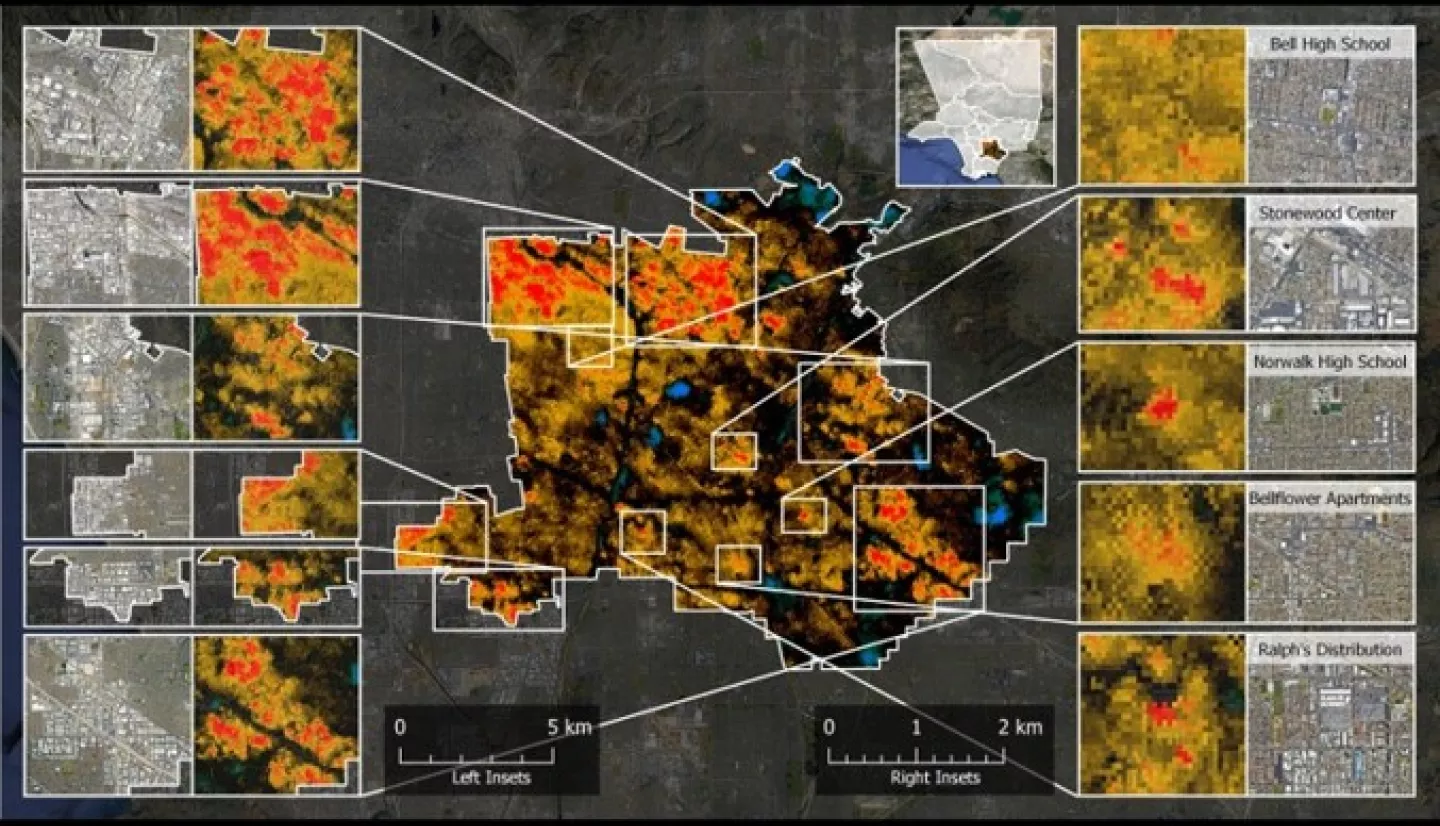In partnership with Communities for a Better Environment, a community-based organization leading the advancement of zero-emission technologies and green infrastructure in environmental justice communities, our 2-year Data Integration Project examines urban heat island- and air pollution-related inequities toward identifying ecosystem service-based solutions for advancing equity and environmental justice (EEJ) in Southeast Los Angeles (SELA), California. SELA is a large, underserved, environmental justice community of color that bears an uneven burden of urban heat islands and mobile and stationary sources of air pollution. Further, inequitable access to ecosystem services (e.g., health benefits derived from natural environments) that mitigate heat island and air pollution impacts (e.g., public parks, open space, treetop canopy) may exacerbate poor health outcomes in SELA.
To address these social and environmental inequities, we created a Research Leadership Academy (RLA) to train SELA youth and adult residents on the scientific, technical, and procedural aspects of our community-based participatory research concerning the public health impacts of (1) localized urban heat islands and air pollutants and (2) access to urban public parks, open spaces, and treetop canopy (i.e., greenspace) associated with ecosystem services that may serve to mitigate urban heat island- and air pollution-related health impacts. Specifically, we are working with the RLA and broader SELA residents to:
A. Quantify the spatial distribution of urban heat islands, air pollutants (e.g., NOx, PM2.5), greenspace, and associated health outcomes in SELA.
B. Identify the primary locations where SELA residents (i) are exposed to urban heat islands and air pollutants, and (ii) access greenspaces that provision ecosystem services.
C. Develop a GIS-enabled decision-making tool to disseminate air pollutant and urban heat island exposure information, and advance greenspace access and community health.
Or research provides: (1) critical information and data for CBE, community residents, and policymakers to inform and develop health promoting policies and direct life-saving resources; and (2) the necessary data and methods needed to inform and support our long-term goal of examining air pollutant and heat island impacts and greenspace-based mitigation strategies in environmental justice communities across Los Angeles, California, and broader U.S. and global communities.
